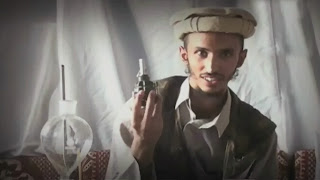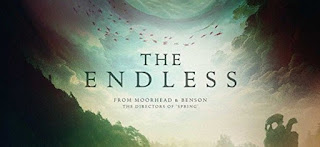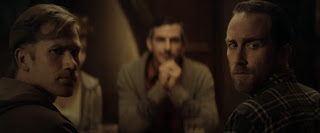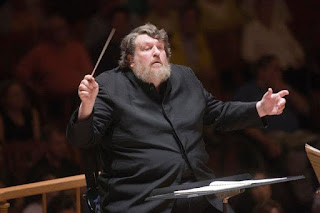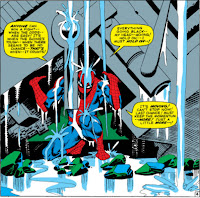 Note: This remembrance appeared originally in January 2007, in issue 50 of Crime Time, when it was still a magazine, six months after Mickey's death in July 2006. I came across it misfiled in my computer, re-read it, and felt saddened again that I didn't get to write a proper obit of Mickey for one of the British papers. You'll find the Daily Telegraph version of my interview with Mickey on the site here, maybe I will go back and post the whole interview soon. Note in this piece, which is as I wrote it, not as it appeared, I mention Sax Rohmer's novel President Fu Manchu; didn't that turn out to be prophetic! Since Mickey was so derisive of 'that cocksman' Bill Clinton when I interviewed him, I would love to ask him his thoughts on Donald Trump. In the meantime, a heartfelt RIP to Mickey, and though Max has done a great job with his unpublished oeuvre, I still miss him.
Note: This remembrance appeared originally in January 2007, in issue 50 of Crime Time, when it was still a magazine, six months after Mickey's death in July 2006. I came across it misfiled in my computer, re-read it, and felt saddened again that I didn't get to write a proper obit of Mickey for one of the British papers. You'll find the Daily Telegraph version of my interview with Mickey on the site here, maybe I will go back and post the whole interview soon. Note in this piece, which is as I wrote it, not as it appeared, I mention Sax Rohmer's novel President Fu Manchu; didn't that turn out to be prophetic! Since Mickey was so derisive of 'that cocksman' Bill Clinton when I interviewed him, I would love to ask him his thoughts on Donald Trump. In the meantime, a heartfelt RIP to Mickey, and though Max has done a great job with his unpublished oeuvre, I still miss him.LAST CALL FOR THE MICK
Respectability really didn't sit all that well with Mickey Spillane, although the world more than caught up with the sex and violence of his Mike Hammer novels, and like whores and politicians, crime writers become respectable if they hang around long enough. Indeed, more people probably know Mickey from his days as the guy in the trench coat fronting Light Beer commercials. 'Hey Mickey, got a Light?'
He was due a re-evaluation anyway, which began with Max Allan Collins' excellent documentary Mike Hammer's Mickey Spillane. Those early novels, the ones written in money-making pulp fever before he found religion, before he began making his living being Mickey Spillane, have real narrative drive. They're structured solidly, and while the characters veer between stereotype and psychopathology, more than anything they present a picture of immediate Post-War America that most writers couldn't beat with the butt of Mike Hammer’s .45.
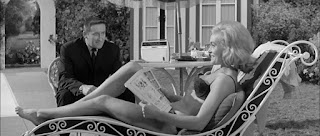 Not that there was anything wrong with Mickey making his living being Mickey, because his passing really does mark the end of an era. He was everything the generation that won the big war, and their younger brothers, wanted to be. Handsome, successful, the best in the world at what he did. I look at the photos of the youthful Mickey signing his first big contract and I see Ted Williams, or John Wayne. Remember, Mickey played Hammer in The Girl Hunters, and didn't do a bad job. How many other writers could match that?
Not that there was anything wrong with Mickey making his living being Mickey, because his passing really does mark the end of an era. He was everything the generation that won the big war, and their younger brothers, wanted to be. Handsome, successful, the best in the world at what he did. I look at the photos of the youthful Mickey signing his first big contract and I see Ted Williams, or John Wayne. Remember, Mickey played Hammer in The Girl Hunters, and didn't do a bad job. How many other writers could match that?Mick represents an era when tough guys didn't swear in front of ladies. Where men wore hats that could be knocked off in fights. Where hair tonic kept your crewcut stiff. Where strippers in pasties were hot stuff, suggesting sex you didn't have to sit through a TV dinner to get. An age where people believed in things like truth, justice and the American way, and no one had yet proven them wrong. Where men had to do what men had to do. The Mick believed in this world, and his readers felt it in his writing, so they believed too.
When Mickey came to London in 1999 his BBC minders gave me 40 minutes for my interview. Mick was 80 something and had flown overnight from South Carolina. He kept shooing the minders away so we could keep talking. I ran out of tape. It didn't matter; Mickey was still telling me stories as they pushed him into the cab to Broadcasting House. I told him my mother had named me Michael because she'd loved Mike Hammer, reading him pregnant at 19 and feeling very adult. 'Jeez ya shudda hoyed the names they gave me,' he said, a pitchman to the end.
 Ironically, the film Kiss Me Deadly, which satirizes Spillane brilliantly, may be the most enduring part of Mickey's legacy. For film buffs it might be John Alton's 3-D noir camerawork on I The Jury. It certainly won't be Biff Elliott, nor Stacy Keach, nor the underrated Armand Assante, nor any of the other actors who tried to play in Hammer time. I suspect the Mike Hammer novels will live on, as period pieces perhaps. they might get studied in American Studies classes, the way mine under Richard Slotkin read President Fu Manchu back in 1971. But Mickey Spillane, who sold America on the virtues of the American way, via paperback sex and violence, will certainly live on, because he was his own most enduring creation. I'll miss him.
Ironically, the film Kiss Me Deadly, which satirizes Spillane brilliantly, may be the most enduring part of Mickey's legacy. For film buffs it might be John Alton's 3-D noir camerawork on I The Jury. It certainly won't be Biff Elliott, nor Stacy Keach, nor the underrated Armand Assante, nor any of the other actors who tried to play in Hammer time. I suspect the Mike Hammer novels will live on, as period pieces perhaps. they might get studied in American Studies classes, the way mine under Richard Slotkin read President Fu Manchu back in 1971. But Mickey Spillane, who sold America on the virtues of the American way, via paperback sex and violence, will certainly live on, because he was his own most enduring creation. I'll miss him.

